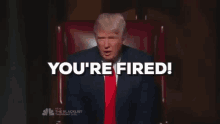Jewish groups rallied in Washington, D.C., in a vast show of solidarity for Israel, the New York Times’ Campbell Robertson, Michael Wines and Zach Montague report.
In Finland, a member of Parliament and a Lutheran bishop who said homosexual sex is a sin won a free speech victory, Christianity Today’s Daniel Silliman writes.
This is our weekly roundup of the top headlines and best reads in the world of faith. We start with Pope Francis’ removal of a conservative East Texas bishop.
What To Know: The Big Story
‘Saddened … but at peace’: News broke a week ago that Pope Francis had fired Bishop Joseph Strickland, “one of the pope’s most vocal critics in the U.S. hierarchy,” according to the Wall Street Journal’s Francis X. Rocca:
The Vatican said that the pope had “relieved [the bishop] of the pastoral governance of the Diocese of Tyler,” Texas, and appointed Bishop Joe Vázquez of Austin as “apostolic administrator,” or acting bishop, of Tyler.
“I’m saddened for the harm to the faithful but at peace in His Truth, stay Jesus Strong,” Strickland wrote via email on Saturday, in response to a request for comment. Asked about his plans, he replied: “Just praying for now.”
The conservative bishop’s departure comes after Francis complained this summer of a “very strong reactionary attitude” among elements of the Catholic Church in the U.S.
In May, the bishop wrote on X, the platform formerly known as Twitter, that “Pope Francis is the Pope but it is time for me to say that I reject his program of undermining the Deposit of Faith,” or the body of Catholic Church teaching contained in the Bible and tradition.
On the Catholic left, the National Catholic Reporter’s Brian Fraga dug deeper into the Vatican’s reasons for the axing of the “firebrand prelate” and “darling of right-wing Twitter.”










